Media Consolidation Is a Threat to Democracy
The problem is more than conservative bias. Many broadcast stations also fail to cover important issues in their local communities.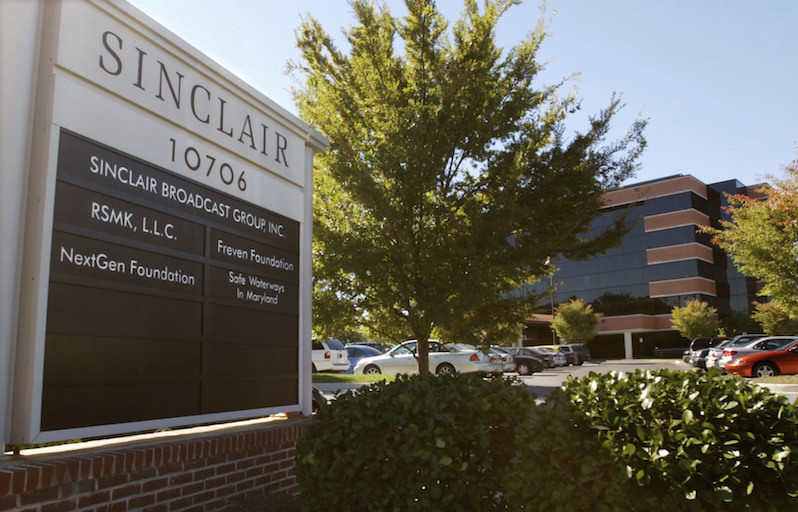 Sinclair Broadcast Group's headquarters in Hunt Valley, Md. The company is one of the largest local TV station operators in the U.S. (Steve Ruark / AP)
Sinclair Broadcast Group's headquarters in Hunt Valley, Md. The company is one of the largest local TV station operators in the U.S. (Steve Ruark / AP)
By Mark Lloyd
Sinclair Broadcast Group’s headquarters in Hunt Valley, Md. The company is one of the largest local TV station operators in the U.S. (Steve Ruark / AP)
The little attention given to communication policy in the press has been sucked up by Federal Communications Commission (FCC) Chairman Ajit Pai’s declared intention to reverse the FCC’s rules regarding the internet. Net neutrality and internet privacy deserve our attention, but it is important to remember that the internet is not the only, and for some, not even the most important, media.
With all the news coming at us from a seemingly endless variety of sources, it may be difficult for some of us to imagine that we suffer from any deficit of information. Or that we should even bother to worry about where the news comes from. After all, isn’t everything available on the internet? And doesn’t Google or Facebook make it easy to get the information we need? Well, no, not really.
Montana recently held a congressional election, pitting a Republican businessman, Greg Gianforte, against a Democrat folk singer, Rob Quist. The day before the election, the businessman body-slammed Guardian reporter Ben Jacobs, and this was caught on audio tape. A much-watched Montana television station, KECI, refused to run the story about the incident. Gianforte was charged with assault, but won the election.
As with any election, many factors were at play in the victory, but the refusal by KECI to report this crime was unquestionably a journalistic failure. It may come as a surprise, but many Montanans rely upon local broadcast television for their news about Montana, and this news sometimes informs their choices in the voting booth. This is true of the vast majority of Americans as well. Yes, broadcasting still matters.
KECI was recently purchased by the Sinclair Broadcast Group.
But what is Sinclair, and why should we care?
Sinclair is a Maryland-based media conglomerate that now owns 173 TV stations in 81 cities across the nation. It has long been a major contributor to political campaigns with a strong preference for Republican candidates and a history of supporting right-wing causes. In 2007, the FCC fined Sinclair for what it called “payola punditry” related to conservative talk show host Armstrong Williams.
In December, Politico reported that Trump’s son-in-law, Jared Kushner, claimed to strike a deal with Sinclair. According to that report, “Kushner highlighted that Sinclair, in states like Ohio, reaches a much wider audience—around 250,000 listeners—than networks like CNN, which reach somewhere around 30,000.”
Shortly after the Republicans took over the White House and increased their power in Congress and the Supreme Court, the Trump-appointed FCC chair, Ajit Pai, apparently sent a green light to Sinclair regarding its plans to take control of Tribune Media. And in April, the FCC, newly dominated by Republicans, voted to bring back an old media consolidation loophole called the UHF discount (relevant when all TV stations were still broadcasting analog signals) that allows broadcasters like Sinclair to exceed congressionally mandated national TV audience coverage limits. Pai’s reinstatement of this old rule is being challenged in court by the Institute of Public Representation, but make no mistake about it—broadcast media consolidation is once again heating up, and we should all be very, very worried.
In May 2017, Sinclair announced a deal to add 42 TV stations to its empire by purchasing Tribune Media. This would give Sinclair stations in New York, Los Angeles, Chicago, Philadelphia, Dallas, Denver and several other top-20 markets.
In addition to ordering its stations’ news operations to cover certain conservative issues in language favorable to Republicans and damaging to Democrats, Sinclair is known for ignoring local issues in favor of prepackaged national opinion. In 2014, Sinclair purchased the Washington, D.C., TV station WJLA. Before too long, WJLA’s veteran news staff was in turmoil as the station began airing Republican-leaning commentary. In other words, conservative bias is only one of the ways Sinclair abuses the privilege of freedom of the press.
What the left seems confused about, but what the right has long understood, is that to shape society all media matters. Not just Facebook and Twitter. Rupert Murdoch does not just own the “Fair and Balanced” Fox cable network. He also owns local television stations, and the New York Post and The Wall Street Journal newspapers and their websites. iHeartRadio (formerly Clear Channel) not only owns 850 radio stations, it also owns Premier Networks (formerly Premier Radio), which employs Rush Limbaugh and oversees a stable of conservative talk shows and their various websites. The right wing knows that internet muckraker Matt Drudge matters, as does Breitbart, and the right-wing bots that infect Facebook, and, yes, Trump’s Twitter. The Republicans understand what Annenberg Scholar Kathleen Hall Jamieson calls the power of the “echo chamber.” But, again, it is important to understand that the problem of media consolidation is not simply conservative bias, it is that so many of these stations fail to cover important issues in the local community.
As local newspapers sell out to larger and more distant news operations they fire local reporters, stop covering local news and fill their so-called newspapers with content that is cheaper to buy and produce. As local radio stations sell out to big conglomerates like iHeartRadio, they get Rush Limbaugh but little to no local news.
As a result of our communications policies, Americans are overwhelmed by 24-hour political talk and commentary, some of it passing for “news” but almost none of it related to what is happening in local communities. Google, Facebook, Fox, MSNBC and The New York Times do not fill in the gaps left in the wake of media consolidation. True, many major markets, including New York, Los Angeles, Chicago and Washington, D.C., are exceptions to this, but what some scholars call media deserts is the rule in most of our country. Media consolidation is a threat to our republic.
The FCC and members of Congress who oversee the FCC are supposed to protect localism. The FCC gives away free licenses to use the public airways. In return, those licensees promise to address the local needs of the community. But do they?
In 2018, we will have a chance to elect members of Congress who understand this, are ready and willing to make sure that whatever favors Pai gives to the Sinclairs of our country are stopped cold and that the FCC begins to serve the public, not the big donors.
Mark Lloyd is a clinical professor of communication at the University of Southern California’s Annenberg School for Communication and Journalism. He is a lawyer, a public policy advocate and an Emmy award-winning journalist, as well as the former associate general counsel at the Federal Communications Commission. He is co-editor of The Communication Crisis in America, And How to Fix It.
Your support matters…Independent journalism is under threat and overshadowed by heavily funded mainstream media.
You can help level the playing field. Become a member.
Your tax-deductible contribution keeps us digging beneath the headlines to give you thought-provoking, investigative reporting and analysis that unearths what's really happening- without compromise.
Give today to support our courageous, independent journalists.
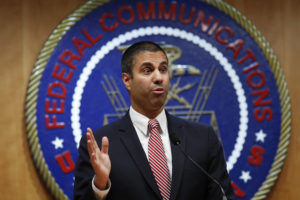
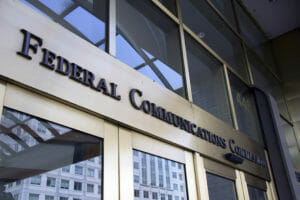
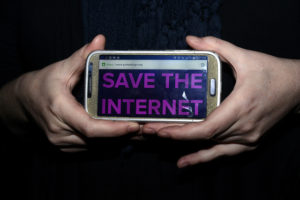
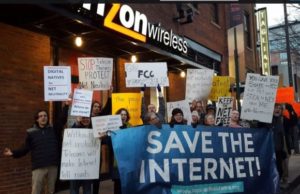
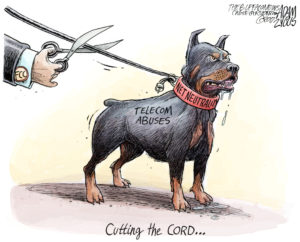
You need to be a supporter to comment.